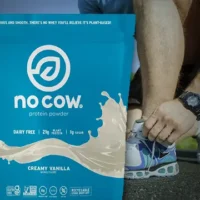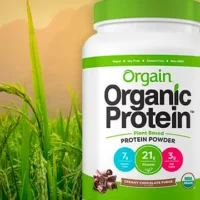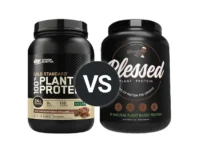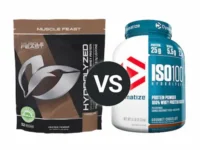Knowledge BaseYou're Questions Answered
Is soy protein powder gluten free?
Soy protein powder is a popular plant-based protein supplement derived from soybeans. It is commonly used by individuals looking for a non-dairy and vegan protein source. For those with gluten sensitivities or celiac disease, understanding whether soy protein powder is gluten-free is essential for maintaining a safe diet.
Gluten-Free Status of Soy Protein Powder
Soy protein powder itself is naturally gluten-free because it is made from soybeans, which do not contain gluten1. Gluten is a protein found in wheat, barley, and rye, and soybeans do not belong to the same botanical family. Therefore, pure soy protein powder without added ingredients is generally safe for individuals with gluten intolerance or celiac disease.
Potential for Cross-Contamination
While soy protein powder is naturally gluten-free, there is a potential risk of cross-contamination during processing or packaging. This can occur if the facility where the soy protein is processed also handles gluten-containing products. To ensure that the product is truly gluten-free, look for:
- Gluten-Free Certification: Choose soy protein powders that are labeled as “gluten-free” and have third-party certification to confirm that they meet gluten-free standards.
- Review the Ingredients List: Check for any additional ingredients that may contain gluten or for statements about potential cross-contamination.
Choosing a Safe Soy Protein Powder
When selecting a soy protein powder, it’s important to choose high-quality brands that are transparent about their production processes. Some brands specifically state that their products are manufactured in gluten-free facilities to minimize the risk of cross-contamination2.
Tips for Ensuring a Gluten-Free Diet
- Read Labels Carefully: Always check the product label to confirm that it does not contain gluten or has been contaminated with gluten.
- Choose Trusted Brands: Opt for reputable brands that test for gluten content and label their products accordingly.
- Consult with a Dietitian: If you have celiac disease or severe gluten sensitivity, consider consulting with a dietitian to ensure that your diet remains safe and well-balanced.
- Shewry, P. R., & Halford, N. G. (2002). Cereal seed storage proteins: Structures, properties and role in grain utilization. Journal of Experimental Botany, 53(370), 947-958.
- Thompson, T. (2001). Wheat starch, modified starch, and hydrolyzed wheat protein: Are they gluten-free? Journal of the American Dietetic Association, 101(11), 1456-1459.
Related Questions

Your Answer
We are a participant in the Amazon Services LLC Associates Program, an affiliate advertising program designed to provide a means for us to earn fees by linking to Amazon.com and affiliated sites.






